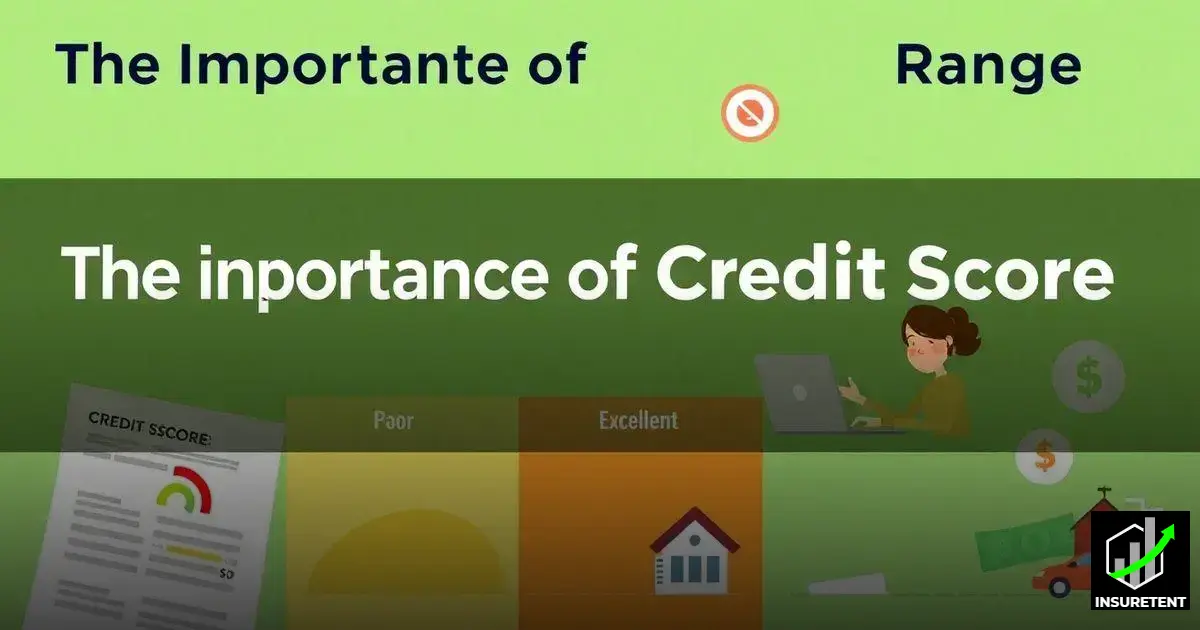Understanding credit score ranges is a vital step toward making smart financial choices. Your credit score serves as a snapshot of your financial health and plays a significant role in determining your eligibility for loans, credit cards, and competitive interest rates.
A clear grasp of these ranges empowers you to take control of your financial future. By knowing where you stand and what lenders look for, you can improve your score and access better financial opportunities.
Continue reading to discover how credit score ranges impact your financial options and learn strategies to improve your standing.
What is a Credit Score?
A credit score is a three-digit number ranging from 300 to 850 that represents a person’s creditworthiness. This score is based on information from your credit report, which includes details about your credit accounts, payment history, and amount of debt. Lenders use this score to evaluate the risk of lending you money or extending credit.
The components of a credit score typically include the following factors:
1. Payment History: About 35% of your score is influenced by whether you’ve paid your bills on time.
2. Credit Utilization: This factor makes up 30% of your score and refers to the ratio of your current credit card balances to your credit limits.
3. Length of Credit History: This contributes 15% to your score, based on how long your credit accounts have been active.
4. Types of Credit: A mix of credit types, including credit cards, loans, and mortgages, accounts for 10% of your score.
5. New Credit: This includes the number of new accounts you’ve opened and accounts for 10% of your score.
Understanding your credit score can help you make better financial decisions. Higher credit scores can lead to lower interest rates, while lower scores may result in denials for loans or credit.
The Importance of Credit Score Ranges

The importance of credit score ranges cannot be overstated. They help lenders assess risk when considering loan applications. A low credit score may mean higher interest rates or even loan denial, while a high score can lead to better terms and incentives. Understanding these ranges allows consumers to improve their credit scores by making informed decisions.
Here are the main credit score ranges:
- 300-579: Poor credit – may struggle to secure loans
- 580-669: Fair credit – may have limited options
- 670-739: Good credit – eligible for many loans
- 740-799: Very good credit – likely to receive competitive rates
- 800-850: Excellent credit – top-tier offers and rates
Each range corresponds to different lending scenarios. By striving to achieve a credit score in the good or excellent range, individuals can enjoy more financial opportunities. Monitoring your credit score regularly can help you stay on track with your financial goals.
How Credit Score Ranges are Determined
Credit score ranges are determined by several key factors, which are calculated using complex algorithms. These algorithms analyse your credit history and behaviour. The main factors include:
- Payment History: This is the most significant component, accounting for about 35% of your score. Lenders want to see if you pay your bills on time.
- Credit Utilisation: This makes up around 30% of your score. It measures how much credit you are using compared to your credit limit. Ideally, you should keep this ratio below 30%.
- Length of Credit History: This accounts for about 15% of your score. The longer your accounts are active, the better it is for your score.
- Types of Credit: This includes various credit accounts such as credit cards, loans, and mortgages, and contributes 10% to your score.
- Recent Credit Inquiries: New credit inquiries can lower your score slightly and account for 10% as well.
Each of these factors plays a critical role in shaping your credit score. Understanding them can help you manage and improve your credit effectively.
Understanding Different Credit Score Models

Understanding different credit score models is essential for evaluating your financial health. The two primary models are the FICO Score and the VantageScore.
- FICO Score: Created by the Fair Isaac Corporation, this model ranges from 300 to 850. It is widely used by lenders to make credit decisions. FICO Scores are influenced by five main factors: payment history, credit utilisation, length of credit history, types of credit, and new credit inquiries.
- VantageScore: Developed by the three major credit bureaus—Experian, TransUnion, and Equifax—VantageScore also ranges from 300 to 850. However, this model can use data from different sources and has slightly different criteria for scoring. It focuses on similar factors but may place less weight on the length of credit history.
Both models aim to predict credit risk, but lenders may prefer one over the other based on their requirements. It is important to check both scores to get a complete picture of your creditworthiness.
Tips for Improving Your Credit Score
Improving your credit score is achievable with consistent effort. Here are some effective tips to help you on your journey:
Pay Bills on Time: Your payment history is critical. Set reminders to ensure timely payments.
Reduce Credit Utilisation: Keep your credit card balances below 30% of your limits. This practice can positively influence your score.
Check Your Credit Report: Regularly review your report for errors and dispute inaccuracies promptly.
Avoid Opening New Accounts Frequently: Each application can lower your score slightly. Only apply for new credit when necessary.
Diversify Your Credit Types: A mix of credit accounts like loans and credit cards can have a positive effect.
Consider a Secured Credit Card: If you’re starting with a low score, a secured card can help build credit.
By following these tips consistently, you can make gradual improvements to your credit score over time.
Frequently Asked Questions about Credit Scores

Frequently asked questions about credit scores can help clarify many common doubts. Here are some key inquiries answered:
- What is a credit score? A credit score is a number that represents your creditworthiness based on your credit history.
- How can I improve my credit score? You can improve your score by paying bills on time, reducing debt, and checking your credit report for errors.
- How often should I check my credit score? It is advisable to check your credit score at least once a year to stay informed about your credit health.
- What is a good credit score? Generally, a score above 700 is considered good, while scores above 800 are excellent.
- Can checking my own credit score lower it? No, checking your own credit is considered a soft inquiry and does not affect your score.
Understanding these FAQs can help you navigate the world of credit more effectively.
Take Control of Your Credit Score for a Brighter Financial Future
Understanding credit score ranges and how they affect your financial health is crucial. By being aware of what influences your credit score, you can make informed decisions to enhance it.
By following the tips provided, monitoring your credit regularly, and addressing any discrepancies, you can improve your score over time. High credit scores lead to better financial opportunities and can save you money in interest rates.
Take charge of your credit management today, and pave the way for a better financial future.
Check out our article on Payday Loans to learn about their advantages, risks, and how to use them responsibly.
